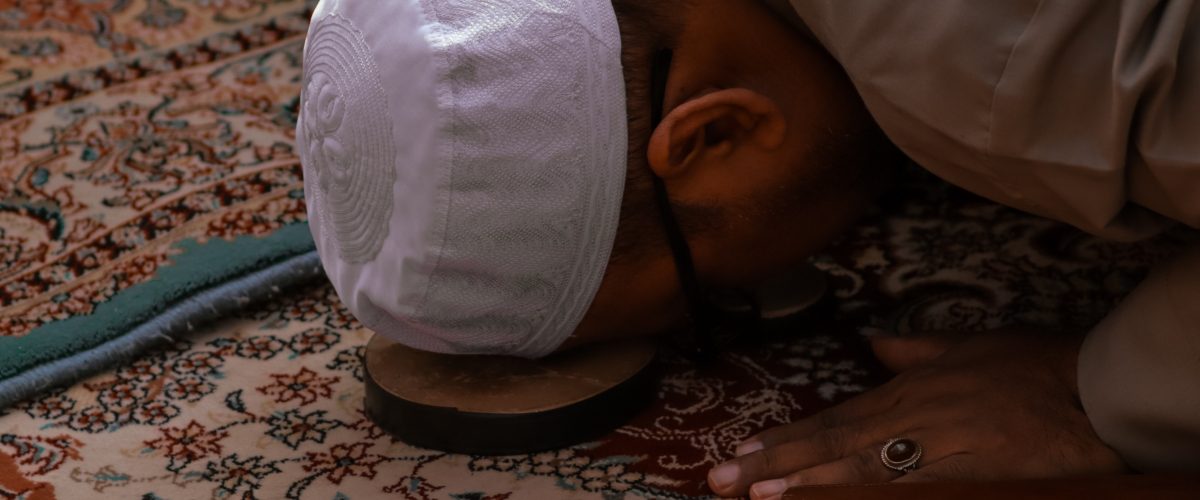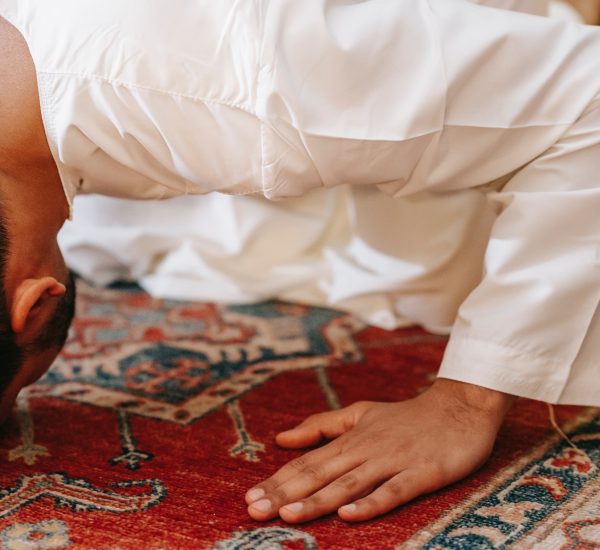Obligatory Acts of Prayer
There are 11 acts that are wajib (obligatory) in salat. 5 of these acts are ‘Rukn’, meaning that if any of these are left out unintentionally, the prayer will be invalid. The rest of the acts are ‘Ghair Rukn’, meaning that the prayer will be invalid only if they are left out intentionally. (Rukn: Niyyah, Takbirat-ul-Ihram, Qiyam, Ruku, and 2 Sujood – Red, Ghair Rukn – Blue)
Niyyah: Intention to pray for nearness to Allah (swt) (Click to read more)
Takbirat-ul-Ihram: (Saying Allah-u-Akbar after niyyah) (Click to read more)
Qiyam: Standing (Click to read more)
Ruku: Bowing (Click to read more)
2 Sujood: Prostrating (Click to read more)
Dhikr: To recite 'tasbih' (praise of Allah (swt)) during Ruku and Sujood
Tashahud: To be recited after 2 sujood of unit 2 and unit 4
Salaam: To be recited in the last unit of salat after 'Tashahud'
Muwalaat: To pray without interruption or gap
Things that Invalidate Salat
- Doing something that breaks your Wudhu (For example: Passing gas)
- Turning away from the ‘Qibla’ (Mecca)
- Any action that disturbs the image (postures) of salat, such that someone would think that you are not praying.
- Speaking anything other than ‘Qira’at’ or ‘Dhikr’ of salat (replying to salam does not invalidate the prayer)
- Laughing intentionally (smiling does not invalidate the prayer)
- Crying intentionally for worldly affairs (crying for the fear of Allah does not invalidate the prayer)
- Eating or drinking, intentionally or by mistake
- Folding hands or saying ‘Amin’ after Surah Al-Hamd
- Realizing that a condition of salat is violated (For example: Realizing that you are praying without Wudhu)
- Strong doubts in the first 2 units of a 4 unit prayer (Zuhr, Asr or Isha), or in any unit of a 2 or 3 unit prayer (Fajr or Maghrib) (For example: Not remembering which unit of prayer you are currently praying)
- Adding or leaving out any ‘rukn’ of prayer.




